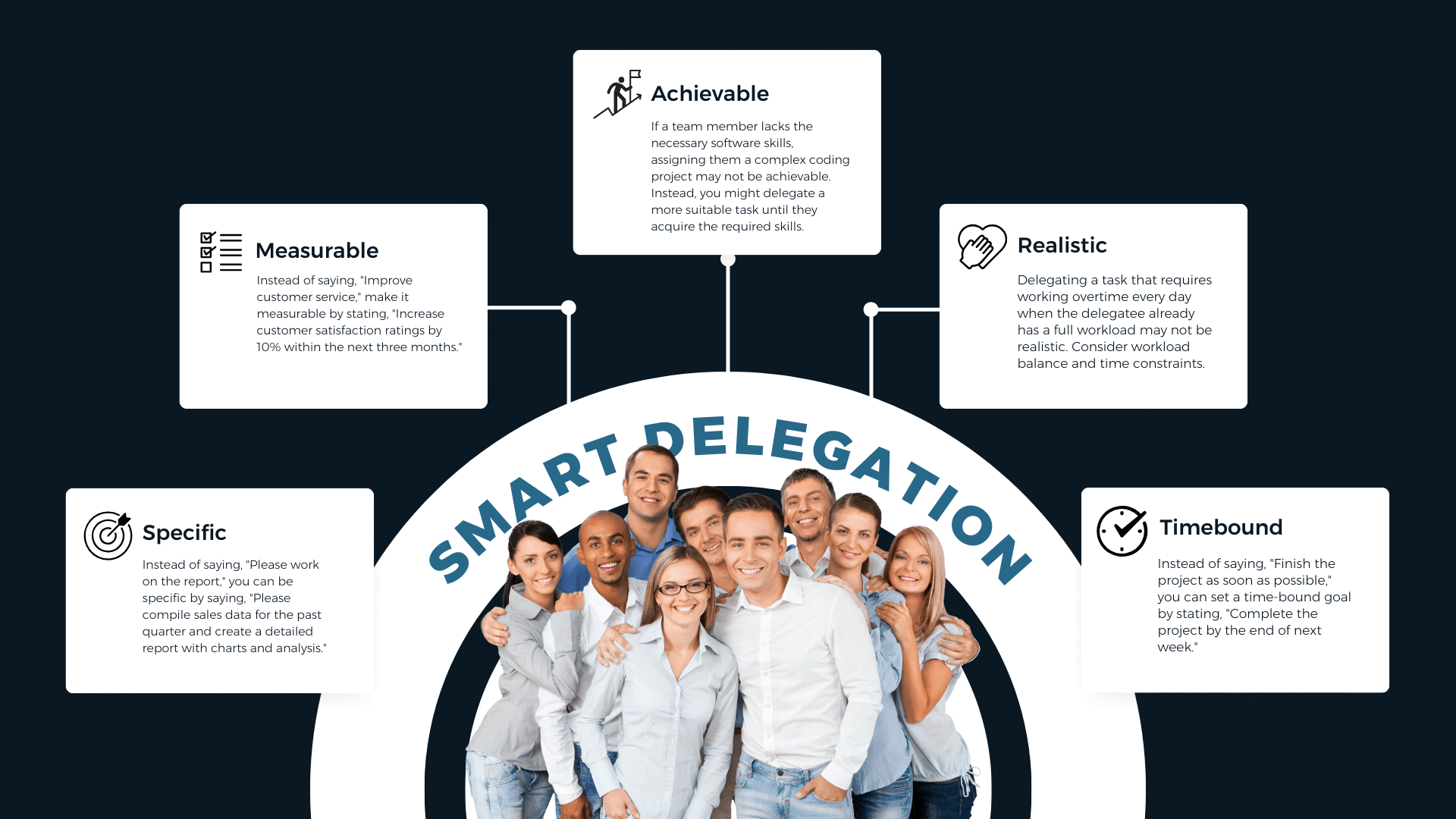Many of the clients I collaborate with face hurdles when it comes to the art of delegation. Some grapple with the fear of releasing control to their team members, while others, particularly newly promoted managers, worry about potential resentment from their employees. There’s also a common misconception that doing everything oneself enhances team efficiency and effectiveness.
“It is important to overcome these challenges, as effective delegation can have wide-ranging benefits for the delegator, the delegatees and the organization as a whole.”
This is the premise proposed in an article published earlier this year by the American Management Association (AMA), entitled “Delegation Do’s and Don’ts”, Delegation Do’s and Don’ts | AMA (amanet.org)
WHY Delegate?
Most leaders and managers that I work with know WHY delegation is important. The benefits for the delegator include reducing personal workload, to better manage stress and time constraints, and to better devote their energies toward “more impactful” work activities. For the delegatee, advantages include skill development, building personal accountability, and creating visibility for themselves across their organization. For the organization, the benefits include creating an environment of trust and empowerment, as well as developing more skilled staff members/ future leaders.
Understanding WHY delegation is essential marks the first step in executing SMART delegation. The greater challenge lies in determining WHEN and HOW to delegate to realize these benefits, causing uncertainty and stress for many clients.
WHEN to Delegate and WHEN NOT to Delegate?
In reference to the above-mentioned AMA article:

Delegate tasks with:
- Recurring decisions and actions that others can handle.
- Pressing priorities that you can’t handle but others can.
- Special projects and long-range timelines
- Detailed work on projects that you are handling.
- Opportunities to help people grow in areas key to their future.
Avoid delegating tasks that:
- Are sensitive and personal in nature.
- Require a degree of risk and decision-making that is unfair to the delegatee.
- Require your personal expertise.
- Require your personal leadership.
- Have legal restrictions.
HOW to Delegate?
Once you have decided what to delegate and to whom (e.g., avoiding members that are already overloaded, or who lack the skills to complete the task successfully), be SMART about how you do it. Delegation guidance should be Specific, Measurable, Achievable, Realistic, and Timebound.
Breakdown of SMART Delegation?
- Specific: When delegating a task, it’s essential to be specific about what needs to be done. Instead of giving vague instructions, clearly define the task, its scope, and the desired outcome. Specificity helps prevent misunderstandings and ensures that everyone involved has a clear understanding of their responsibilities.
- Measurable: Delegated tasks should include measurable criteria to evaluate success. This involves establishing measurable goals or performance metrics to monitor progress and assess task completion.
- Achievable: Ensure that the task you delegate is realistic and attainable by the person or team responsible for it. Consider the delegatee’s skills, resources, and capacity to complete the task successfully. Setting unattainable goals can lead to frustration and failure.
- Realistic: Similar to achievability, the task should align with the delegatee’s abilities and available resources. It should also align with broader organizational goals and priorities. Delegating unrealistic or impractical tasks can lead to wasted time and effort.
- Time-bound: Specify a deadline or timeframe for task completion. Without a time constraint, tasks can linger indefinitely and lose focus. A clear timeline provides a sense of urgency and helps prioritize tasks effectively.

Takeaway
As a leader/manager, you have control over delegation. If there are barriers holding you back, start slowly with one task at a time. Test and learn and then course correct, as needed. Reduce misunderstandings, and foster a more efficient and accountable work environment. Always remember why delegation is important for yourself, your team, and your organization. Be mindful of tasks that should be delegated and always practice SMART delegation.


